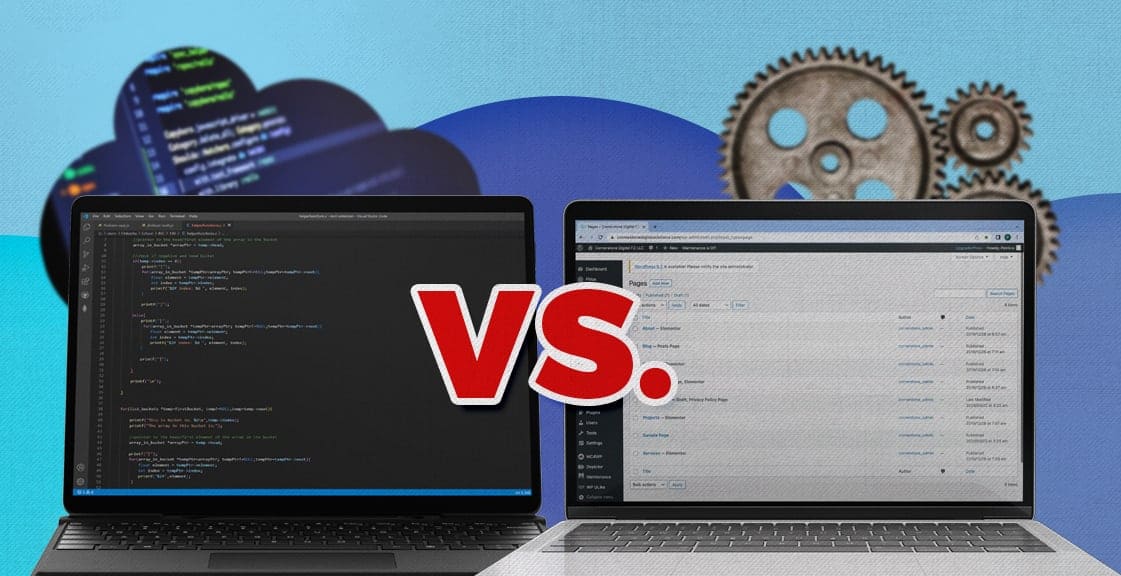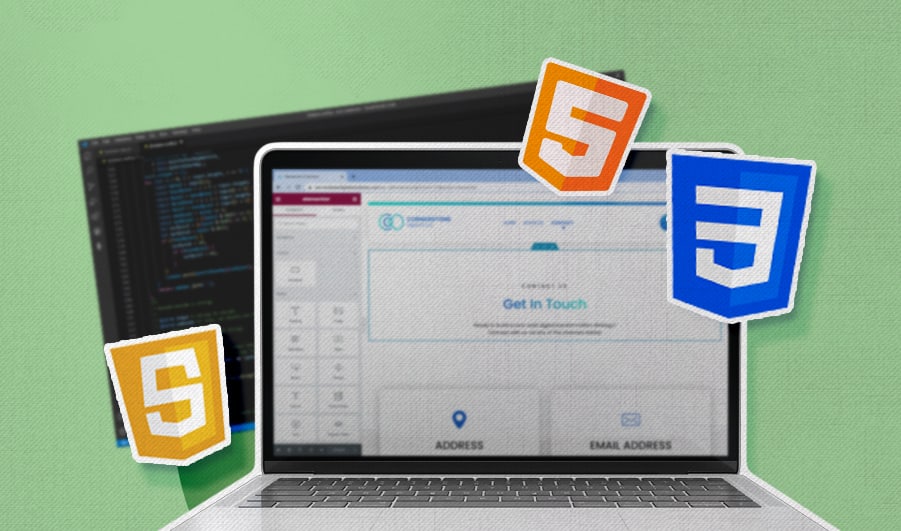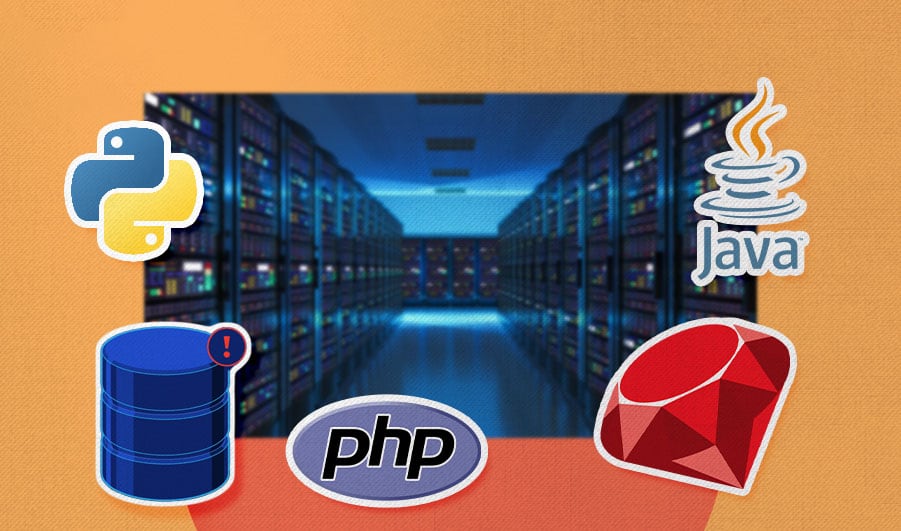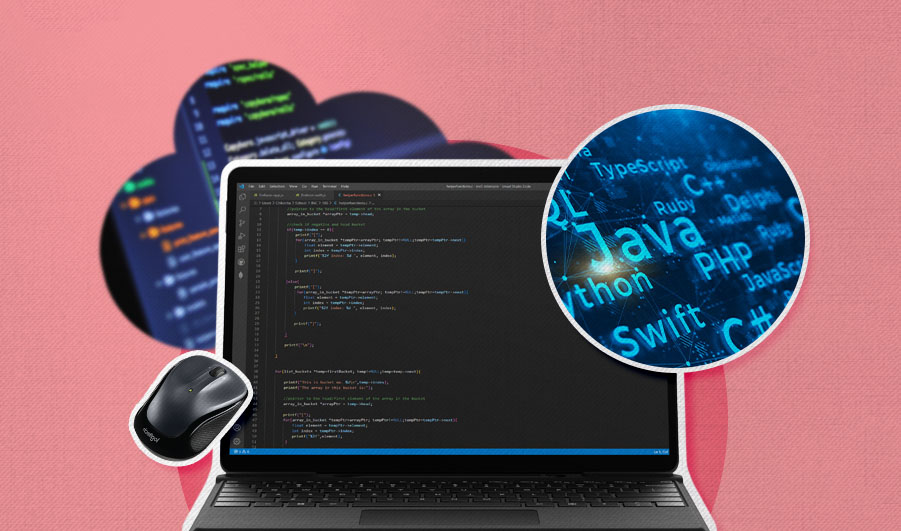Web Development
The Difference of Front-End vs. Back-end Web Development: A Comprehensive Guide For Beginners


As a beginner in web development, you may have heard the terms “front-end” and “back-end” thrown around. But what exactly do they mean, and what is the difference between them? In this comprehensive guide, we will explore the fundamentals of front-end and back-end web development and help you understand their key differences.
Front-End Web Development
Front-end web development refers to the part of the web development process that involves creating the user interface and interactions that users see and interact with. This involves creating web pages using HTML, styling them with CSS, and adding interactivity with JavaScript. Here are some key aspects of front-end web development:

- User Interface Design: Front-end developers are responsible for designing the user interface, including the layout, typography, colors, and other visual elements that make up the look and feel of a website.
- HTML: HTML is the markup language used to create the structure of web pages, including headings, paragraphs, images, and links.
- CSS: CSS is used to style HTML elements, including the layout, colors, fonts, and other visual aspects of the user interface.
- JavaScript: JavaScript is used to add interactivity to web pages, including animations, form validation, and other dynamic elements.
Back-End Web Development
Back-end web development refers to the part of the web development process that handles the server-side of web applications, including databases, servers, and APIs. This involves creating the logic that powers the website’s functionality and stores and retrieves data. Here are some key aspects of back-end web development:

- Server-Side Languages: Back-end developers use programming languages like PHP, Ruby, Python, or Java to create the server-side code that powers the website’s functionality.
- Databases: Back-end developers use databases like MySQL, PostgreSQL, or MongoDB to store and retrieve data.
- Servers: Back-end developers use web servers like Apache, Nginx, or Microsoft IIS to serve web pages to users.
- APIs: Back-end developers use APIs (Application Programming Interfaces) to allow different parts of the website to communicate with each other.
Key Differences Between Front-End and Back-End Web Development
Now that we have explored the key aspects of front-end and back-end web development, let’s dive into their key differences:

1. Focus and Goals
Front-end development focuses on creating a visually appealing and interactive user interface that users can see and interact with. Back-end development focuses on creating the logic and functionality that powers the website’s behind-the-scenes operations.

2. Technologies Used
Front-end developers primarily use HTML, CSS, and JavaScript to create the user interface and add interactivity. Back-end developers use programming languages, databases, servers, and APIs to create the logic and functionality that powers the website.

3. Skills Required
Front-end developers need a strong understanding of HTML, CSS, and JavaScript and should be familiar with front-end frameworks like React, Angular, or Vue.js. Back-end developers need a strong understanding of programming languages like PHP, Ruby, Python, or Java and should be familiar with back-end frameworks like Laravel, Ruby on Rails, Django, or Spring.

4. Collaboration
Front-end developers often collaborate with designers and UX professionals to create a visually appealing and user-friendly interface. Back-end developers often collaborate with other developers, system administrators, and database administrators to create a functional and scalable website.

5. User Interaction
Front-end development is focused on creating a user interface that users can see and interact with directly. Back-end development is focused on creating the logic and functionality that powers the website’s behind-the-scenes operations.
Front-end and back-end web development are both essential parts of the web development process, each with their own unique focus and set of technologies and skills. By understanding the key differences between front-end and back-end development, you can determine which area of web development you would like to pursue and what skills and technologies you need to learn. Whether you are interested in creating visually appealing user interfaces or building the logic and functionality that powers websites, there is a place for you in the world of web development.
In conclusion, we hope this comprehensive guide has helped you understand the differences between front-end and back-end web development. Remember that both areas are equally important in creating a successful website and that there are various frameworks, tools, and resources available to help you get started. With patience, determination, and a willingness to learn, you can become a skilled front-end or back-end developer (or both – called a full stack developer!) and make a significant contribution to the world of web development.






